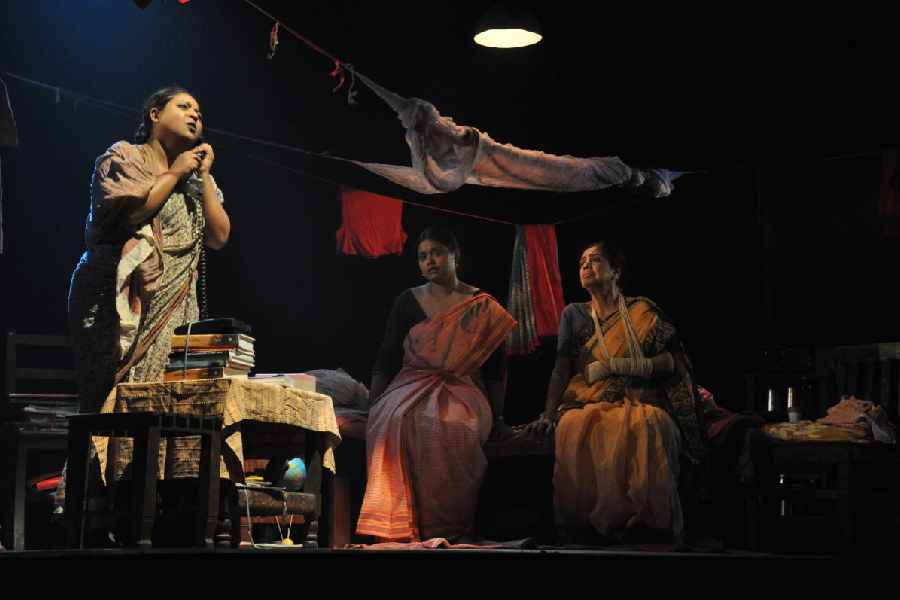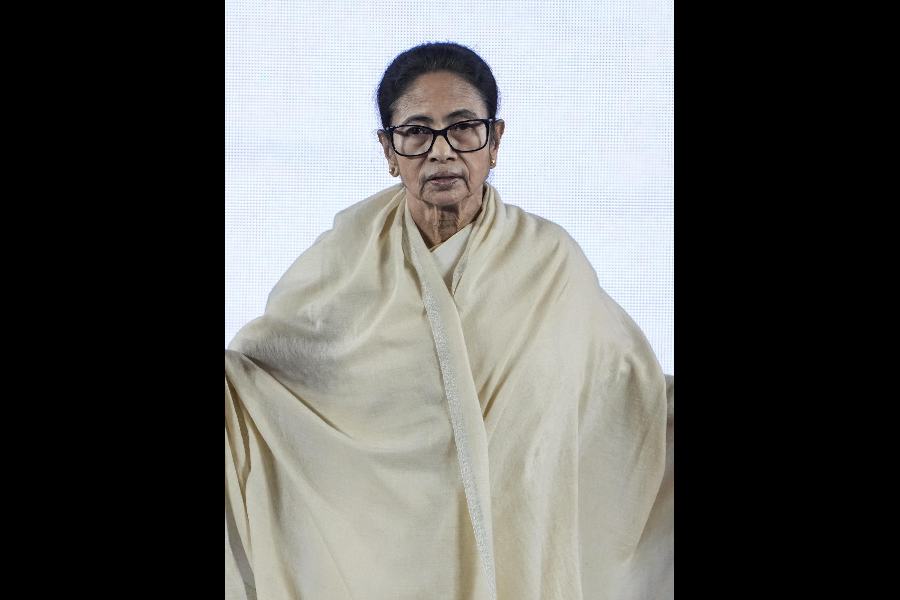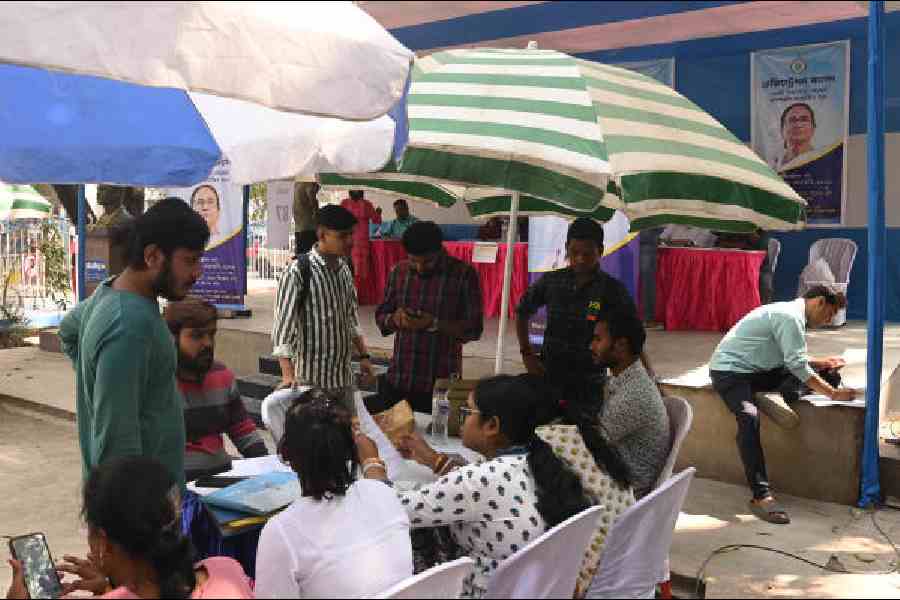Anya Theatre flagged off the birth centenary celebrations of Tripti Mitra (1925-1989) with Aparajita (held at Jogesh Mime Academy, March 1). Old-timers may recall Bohurupee’s 1971 production of the same name which Mitra had directed and enacted with remarkable panache, accomplishing a rare feat in solo-acting in proscenium theatre. Loosely inspired by an Edward Albee text, this Nitish Sen play presents a fresh perspective on a lonely woman’s struggle to find a foothold in a predominantly patriarchal setup.
Turna Das, the director of this new production, has edited Sen’s script, extended the existential predicament of the central character (Sangita Pal) by introducing two more women into this humane drama — one (Krishna Dutta) representing the previous generation and another (Progya Debnath) the next. She succeeds in weaving a complex tapestry of situations and images, all leading to a central question. This interpretation also brings in pertinent issues like inheritance of ancestral property and gaining financial independence. Das keeps the time and space flexible and, at times, towards the end, an old-fashioned landline telephone set becomes the sole connection with the rest of the world.
A dark and claustrophobic set with sarees taking centre stage, an intelligent use of popular songs (for instance, “Pather klanti bhule” from the Bengali feature film, Marutirtha Hinglaj, 1959, plays as the curtain goes up) and a creative use of ambient noise underlining the monotony of urban domesticity make this Aparajita a compelling watch. Lower-middle-class Bengali life in an unspecified part of old Calcutta rarely gets such rounded treatment in contemporary Bengali theatre. An actor-oriented play thus reinvents itself as a telling commentary on women’s rights in a world marked by their systematic marginalisation and structural violence unleashed by the patriarchal machinery.
The acting honours are shared by Pal, Dutta and Debnath, with young Debnath making the most of the moments of flourish that the director allows and veteran Dutta excelling in subtle shifts in expression. Pal’s easy approach helps build momentum. The climax, when all three join forces to reject an indecent proposal — a departure from Sen’s script — deserves a round of applause.










